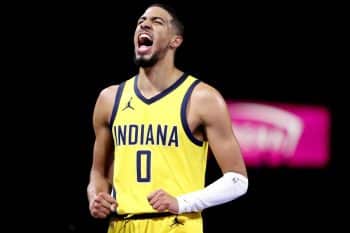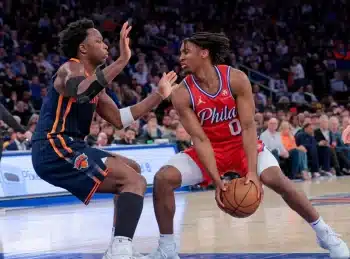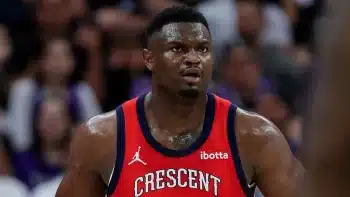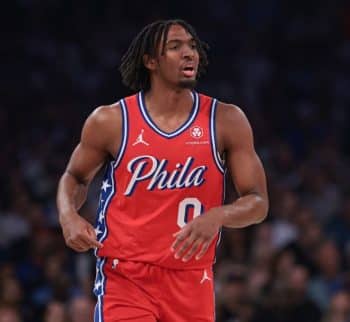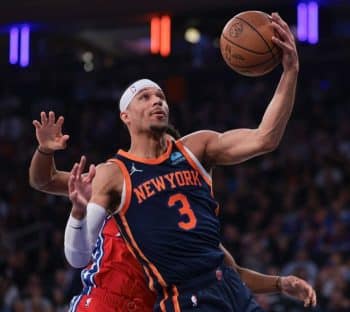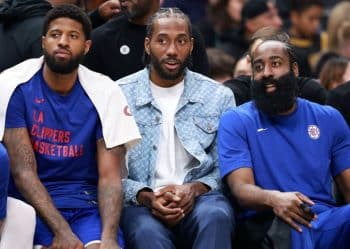NBA
NBA AM: The DNA Of An NBA Winner

Rowing Together
In the age of fantasy rosters and NBA2K lineups, there is often a sense that pairing talent together is all that’s required to have success. While talent and elite talent is a fundamental part of winning at the NBA level, it is usually only the smallest of components.
The DNA of a winning organization isn’t always the same, but it usually is comprised of a lot of the same pieces, those piece in various amounts are the formula teams are chasing in their quest to build a winner, and usually why teams are reluctant to tinker with something close.
So, let’s dig into what makes a winning organization:
It Starts With A Star
While the trend in the NBA is super rosters filled with All-Stars, having the right star at the right time in his career is a vital part to success. Take Kyle Lowry in Toronto as an example, Kyle was always a very promising player, but it wasn’t until Lowry landed in Toronto that he checked his own ego and accepted that he was part of the problem. That turned him into the solution. Lowry didn’t miraculously turn into another player, he matured, found a situation that was right for his game and the Raptors and Kyle have reaped success as a result.
The common narrative around the Oklahoma City Thunder and their decision to trade James Harden is that it was about money, and while money did play a factor, the biggest reason the Thunder traded Harden was they did not see him as the player he became in Houston. They saw him as a sixth man on a title contending team. Harden wanted more than that for his career and pushed for guarantees of being a starter. The Thunder didn’t see it that way and ultimately traded him. Would Harden have become the player he is today in OKC? Maybe. But often it is change and situation that turn players into stars. Boston’s Isaiah Thomas showed promise in his stops in Sacramento and Phoenix, but it wasn’t until he found the Celtics that he blossomed into the star he is today.
Not every star in the NBA is a “can’t miss player” like Cleveland’s LeBron James—sometimes it takes more than a high draft pick to find the right star at the right point in his career to have sustained success.
The Glue Guys
As much as stars matter in NBA basketball, the Glue Guys matter almost as much. Who is the guy that’s going to sacrifice his own game to help the team? Who is the guy that will thrive when things go badly? Who is the guy that will keep the team together in good times and bad? Every sustainable winner has at least one. When you ask yourself why teams continue to sign Thabo Selfosha, it’s because everywhere he’s played his teams have had success. Toronto saw the same in DeMarre Carroll, even though he was older and had some injury concerns.
The Glue Guys matter. The Glue Guys do exactly what their nickname implies—they hold the team together. It’s easy to suggest a player is a “glue guy,” but he has to want that role and understand that role. Sixer fans wanted Nerlens Noel to embrace that role, however that was never something he wanted and it is a big reason the Sixers had to trade him. Richard Jefferson has no delusions of why he is on the Cavaliers’ roster, nor does Channing Frye. They both understand their role and embrace it. It is hard to find players that will sacrifice their own earning potential or chance at stardom or the financial rewards that come with being a featured player, which is why it’s hard to find the right glue guys.
The Role Player
Every sustainable winner needs role players, guys that are on the roster for a singular purpose. Like Glue Guys, it’s hard to find productive players that will sacrifice minutes and future money for minor minutes off the bench. Rim defense is an ever-increasing need in the NBA, but having a full-time center is usually expensive for one of quality, which means finding a guy willing to play a role. San Antonio fans may have snickered when the Spurs invested in Dwayne Dedmon, but considering his impact on the team, who is laughing now? The same can be said for the HEAT when they spent on Willie Reed. Both players can contribute starter level minutes if needed, but both were brought in to play a very specific role that each has embraced. Unfortunately, the hard part of team building is finding guys okay with playing eight to 10 minutes per game, these usually end up being players on the decline of their career that are trying to stay in the league or guys that struggle to stay in the roatation. It’s rare to find a role guy in his prime that’s willing to remain in a role long-term. The Orlando Magic have found tremendous individual success with point guard Elfrid Payton playing from the bench—it jump started his season—however, in the long-term he is unlikely going to accept that role, even though it may suit him best. That’s the challenge in team building, finding players willing to sacrifice for the greater good of the team. The salary system in the NBA is not set up to reward that kind of behavior, which makes finding quality long-term role talent harder, unless a team will overpay for it.
Buy In With The Coach
The role of a head coach in the NBA isn’t what it used to be. It’s unlike college, where the tone of the team is set and policed by the coaching staff. The best teams in basketball have a coach-player partnership. That’s a tough thing to make work. Even in San Antonio, where things seem to start and stop with Gregg Popovich, he has gotten the buy-in from his players. It helps that the Spurs have had so much team success, but even with new faces coming into the situation, Popovich has earned the trust of his players, even the ones that don’t play as big a role as maybe they would like.
When you look at the Cavaliers’ decision to part ways with David Blatt, as much as people want to make it about LeBron James, the truth is the roster never bought into what Blatt was about as a coach and even though they won games, it wasn’t the partnership that’s needed to succeed. Why has it worked so well with Brad Stevens in Boston? His players buy in to the concepts and he has the trust of his team. Why are things so up and down in Detroit and Minnesota? They are both rosters full of young guys that still have not sold out to the process yet.
Having a great X’s and O’s coach is nice, but the truly successful coaches are usually not very elaborate in the game planning, it’s about gaining the trust of the roster, putting in a system players can believe in and letting the players lead the way.
A Vision For The Future
As much as Stars, Glue Guys, Role Players and Coaches matter, understanding the path forward is another key to sustained success. The reason there is unwavering unity in Golden State isn’t just because they are winning together, they understand completely what’s going on around them. The Warriors front office involves the core players in decisions, they are advised and consulted on the big things and they trust the leadership to help them achieve the goal and that’s unwavering from ownership down. There are no separate agendas between ownership leadership, coaching and players.
It’s no surprise the teams that are repeatedly drafting in the lottery have rosters full of guys who have no idea what’s going on or where they fit in the future. How can you expect anyone to sacrifice their own personal goals if they don’t understand the team goals and where they fit in the future?
The LA Clippers players know exactly how the summer is going to play out because they are part of the process. That does not mean there won’t be any harsh business decisions to be made, but what it means is when the trade deadline loomed neither Chris Paul or Blake Griffin felt any need to check the rumor mill, because they knew where they stand and what the immediate future is about and their role in it.
Often in sports, the front office neglects the human component of team building. While players do earn ungodly amounts of money, they are people with families and comfort zones and failing to manage that is usually where teams start to come apart.
The truly successful teams have a plan and everyone in the equation understands their role in the plan, that’s usually when success happens the easiest.
Commitment To The Plan
Having a plan is vitally important, however getting everyone to believe in the plan is hard. There are so many agendas in professional sports. Each player is trying to maximize their earnings while becoming the biggest star they can become. Landing a shoe deal, being named an All-Star, getting commercials and endorsements; these are the gems of the sports world and none of them have anything to do directly with team success.
Then factor in the coaching staff. The head coach is trying to keep his job, win games and put in a process to have sustained success, but his own career is short. Coaching contracts are designed to be torn up at some point in the future. Assistant coaches are often looking for their own path up the food chain, they have their own careers to look out for while also not alienating players. Having a bad relationship with a player is a quick way to the exit.
The same is true in the front office. Few General Managers have an unlimited leash, they too answer to someone who likely does not understand the processes of the team. They have budgets to manage, agents to keep happy, a coach to keep focused and a roster of over-priced crybabies, that often can’t see the forest for all the trees. The guys below them are trying to stay in the NBA and advance their own careers and no sooner does a team get its roster right, then they have to go through another draft and free agency. If a team is lucky enough to find a gem late in the draft or in free agency, they have to decide to play him, trade him or pay him and unless you are the Golden State Warriors, the grind of the NBA can be brutal.
With all of these conflicting agendas, no wonder some teams struggle to find their way, let alone buy into and commit to a plan, especially if things start out rocky.
The New York Knicks players have been talking about their situation this week saying they never developed the trust and chemistry they expected, maybe that was because of the injuries in training camp, maybe that was the personalities in the locker room or simply the culture the Knicks organization seems to foster. Maybe it was a mix of all of it.
Building a roster, finding the coach and buying in into the plan all sounds easy, but it’s truly the hardest part of professional sports. Sometimes, from afar, you can see things those in the trenches of a situation can’t see. Sometimes, teams get lost in their own egos or hype. Sometimes, finding the path gets harder as the lines get blurrier without success.
Whatever the reason, some teams just can’t find success because they are not built for it. However, when you really dig into the teams that win frequently they all have the same characteristics. Building a winner is not easy, but spotting one usually is.
More Twitter: Make sure you are following all of our guys on Twitter to ensure you are getting the very latest from our team: @stevekylerNBA, @MikeAScotto, @LangGreene, @EricPincus, @joelbrigham, @SusanBible @TommyBeer, @MokeHamilton , @jblancartenba, @Ben_Dowsett, @CodyTaylorNBA, @SpinDavies,@BuddyGrizzard, @JamesB_NBA, @DennisChambers_, and @Ben__Nadeau .
